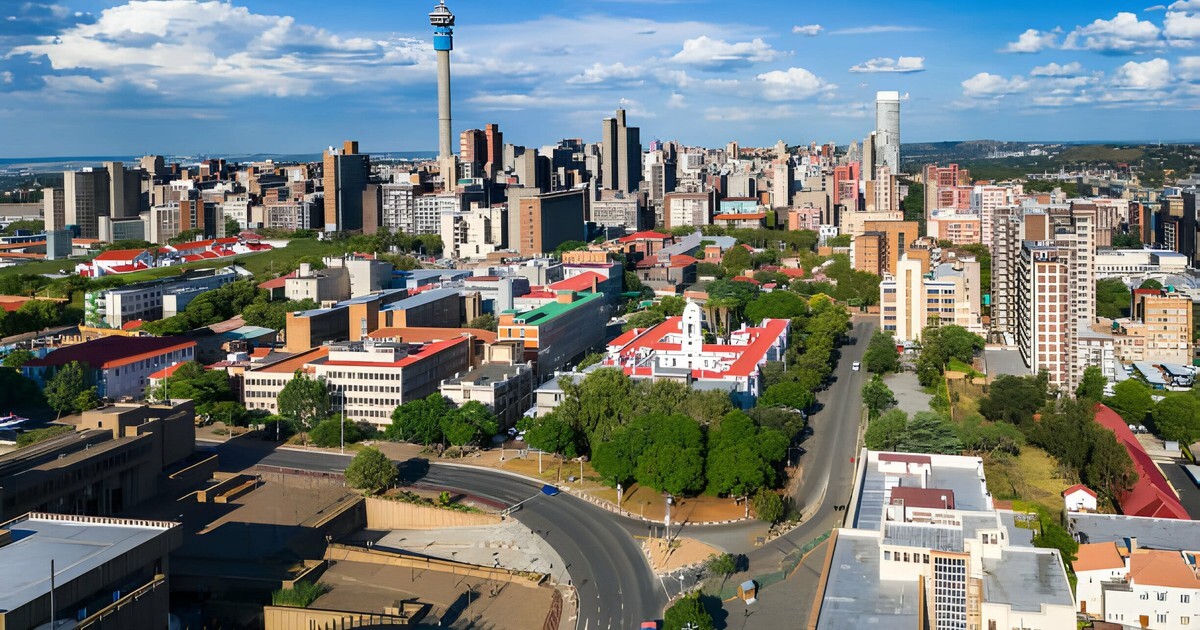South Africa Real Estate Market Size, Trends, Report & Outlook 2025-2033

Strong 8k brings an ultra-HD IPTV experience to your living room and your pocket.
South Africa Real Estate Market Overview
Market Size in 2024: USD 51.69 Billion
Market Forecast in 2033: USD 71.72 Billion
Market Growth Rate 2025-2033: 3.33%
According to IMARC Group's latest research publication, "South Africa Real Estate Market Size, Share, Trends and Forecast by Property, Business, Mode, and Region, 2025-2033", The South Africa real estate market size reached USD 51.69 Billion in 2024. The market is projected to reach USD 71.72 Billion by 2033, exhibiting a growth rate (CAGR) of 3.33% during 2025-2033.
Growth Factors in the South Africa Real Estate Market
- Urbanization and Population Growth
South Africa’s rapid urbanization drives the real estate market. More people are moving to cities like Johannesburg and Cape Town for better jobs and living conditions. This influx boosts demand for homes, especially in urban areas. For instance, developments in Johannesburg’s Sandton area attract young professionals who want to be near business districts. The country’s young population adds to this demand, with many first-time buyers entering the market. Government initiatives, like subsidized housing projects, help address housing shortages. These efforts support market growth by promoting new developments for urban expansion.
- Favorable Interest Rate Environment
Recent interest rate cuts by the South African Reserve Bank have made homes more affordable. This change boosts the real estate market. Lower borrowing costs help first-time buyers and investors. For example, ooba Home Loans noted a rise in home loan applications in Gauteng due to better financing options. This situation encourages hesitant buyers and increases demand for residential and investment properties. The trend of lower rates helps the market recover. More South Africans can now invest in properties, from affordable apartments to luxury estates, stimulating real estate activity.
- Infrastructure Development and Government Support
Government-led infrastructure projects and policies are propelling real estate growth in South Africa. Investments in transport networks, like Gautrain expansions, boost property appeal. Urban regeneration efforts in cities such as Pretoria also play a role. For instance, the Menlyn Maine mixed-use development combines residential, retail, and office spaces. This mix attracts buyers and investors. Additionally, government programs, like the Finance Linked Individual Subsidy Programme (FLISP), help low- to moderate-income families buy homes. This support increases demand. Overall, these initiatives create a positive environment for real estate investment. They encourage both local and foreign involvement in the market.
Key Trends in the South Africa Real Estate Market
- Rise of Sustainable and Eco-Friendly Developments
Sustainability is a rising trend in South Africa’s real estate market. Developers are adding eco-friendly features, such as solar panels and water-saving systems. Consumers care more about energy-efficient homes. They want to cut utility costs and reduce their environmental impact. For example, new developments along Cape Town’s Atlantic Seaboard often include green technologies. This attracts buyers who care about the environment. This trend matches global sustainability goals and South Africa’s move toward greener living. Developers like Amdec Group are incorporating sustainable elements into their projects. Eco-friendly properties draw buyers and boost long-term value. This shift is reshaping the market toward sustainable innovation.
- Semigration to Coastal Regions
Semigration is the trend of people moving to coastal areas like the Western Cape. This shift is driving real estate growth in places such as Camps Bay and Stellenbosch. These areas attract buyers with their beauty and lifestyle perks. For instance, Pam Golding Properties reports high sales in the Western Cape. Many buyers are relocating from Gauteng for remote work and a better life. This trend increases demand for both luxury and affordable homes. Coastal towns are seeing more residential developments to welcome new residents, changing the market landscape.
- Growth of Mixed-Use Developments
Mixed-use developments are becoming popular in South Africa. They combine residential, commercial, and retail spaces for urban residents seeking convenience. Waterfall City in Johannesburg is a great example of this trend. It offers homes, offices, and shopping centers in one place. These projects attract younger buyers, especially millennials, who want to be near amenities and lively communities. This trend also helps urban revitalization. Developers like Growthpoint Properties are investing in mixed-use projects to meet changing lifestyle preferences. This drives demand for properties that provide easy access and modern features all in one location.
Download a sample PDF of this report: https://www.imarcgroup.com/south-africa-real-estate-market/requestsample
South Africa Real Estate Industry Segmentation:
The report has segmented the market into the following categories:
Property Insights:
- Residential
- Commercial
- Industrial
- Land
Business Insights:
- Sales
- Rental
Mode Insights:
- Online
- Offline
Regional Insights:
- Gauteng
- KwaZulu-Natal
- Western Cape
- Mpumalanga
- Eastern Cape
- Others
Competitive Landscape:
The competitive landscape of the industry has also been examined along with the profiles of the key players.
Future Outlook
The South African real estate market is set for steady growth. This growth comes from urbanization, supportive economic policies, and changing consumer needs. Interest rate cuts and infrastructure investments will boost affordability and access. This is especially true for first-time buyers and investors. Sustainability will gain importance. Eco-friendly developments will become standard as buyers look for energy efficiency. Semigration and mixed-use projects will reshape regional markets. The Western Cape and Gauteng will remain popular. Even with problems like economic changes and city service issues, government actions and private innovation will boost a strong market. It will thrive by meeting diverse, modern demands.
Research Methodology:
The report employs a comprehensive research methodology, combining primary and secondary data sources to validate findings. It includes market assessments, surveys, expert opinions, and data triangulation techniques to ensure accuracy and reliability.
Note: If you require specific details, data, or insights that are not currently included in the scope of this report, we are happy to accommodate your request. As part of our customization service, we will gather and provide the additional information you need, tailored to your specific requirements. Please let us know your exact needs, and we will ensure the report is updated accordingly to meet your expectations.
About Us:
IMARC Group is a global management consulting firm that helps the world’s most ambitious changemakers to create a lasting impact. The company provide a comprehensive suite of market entry and expansion services. IMARC offerings include thorough market assessment, feasibility studies, company incorporation assistance, factory setup support, regulatory approvals and licensing navigation, branding, marketing and sales strategies, competitive landscape and benchmarking analyses, pricing and cost research, and procurement research.
Contact Us:
IMARC Group
134 N 4th St. Brooklyn, NY 11249, USA
Email: [email protected]
Tel No:(D) +91 120 433 0800
United States: +1-631-791-1145
Note: IndiBlogHub features both user-submitted and editorial content. We do not verify third-party contributions. Read our Disclaimer and Privacy Policyfor details.


